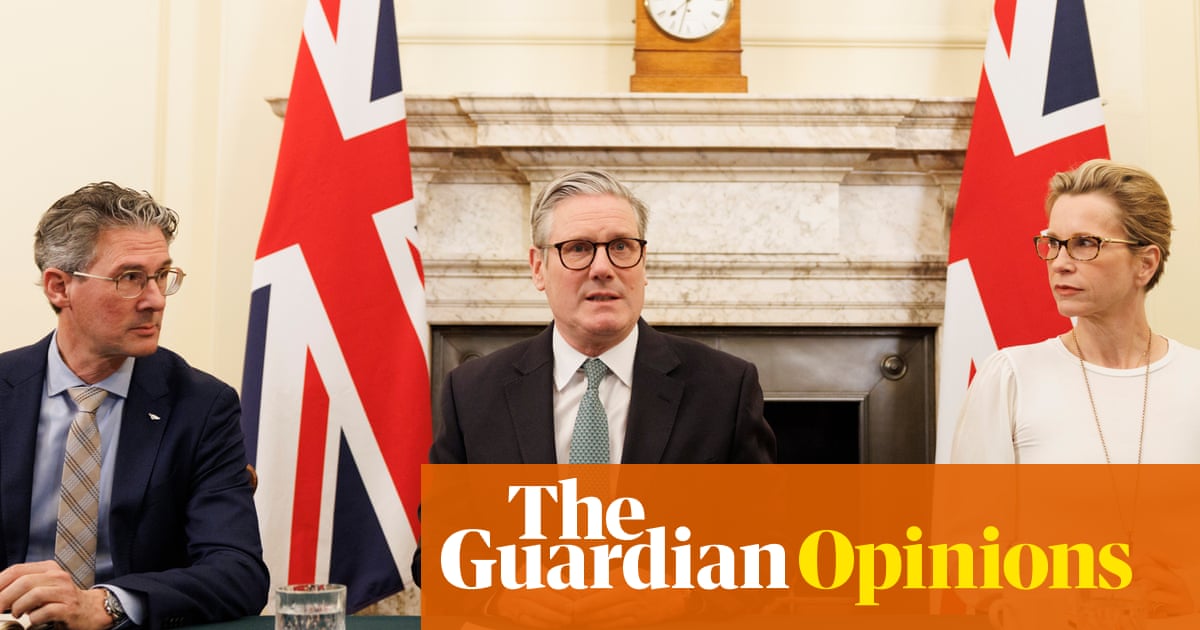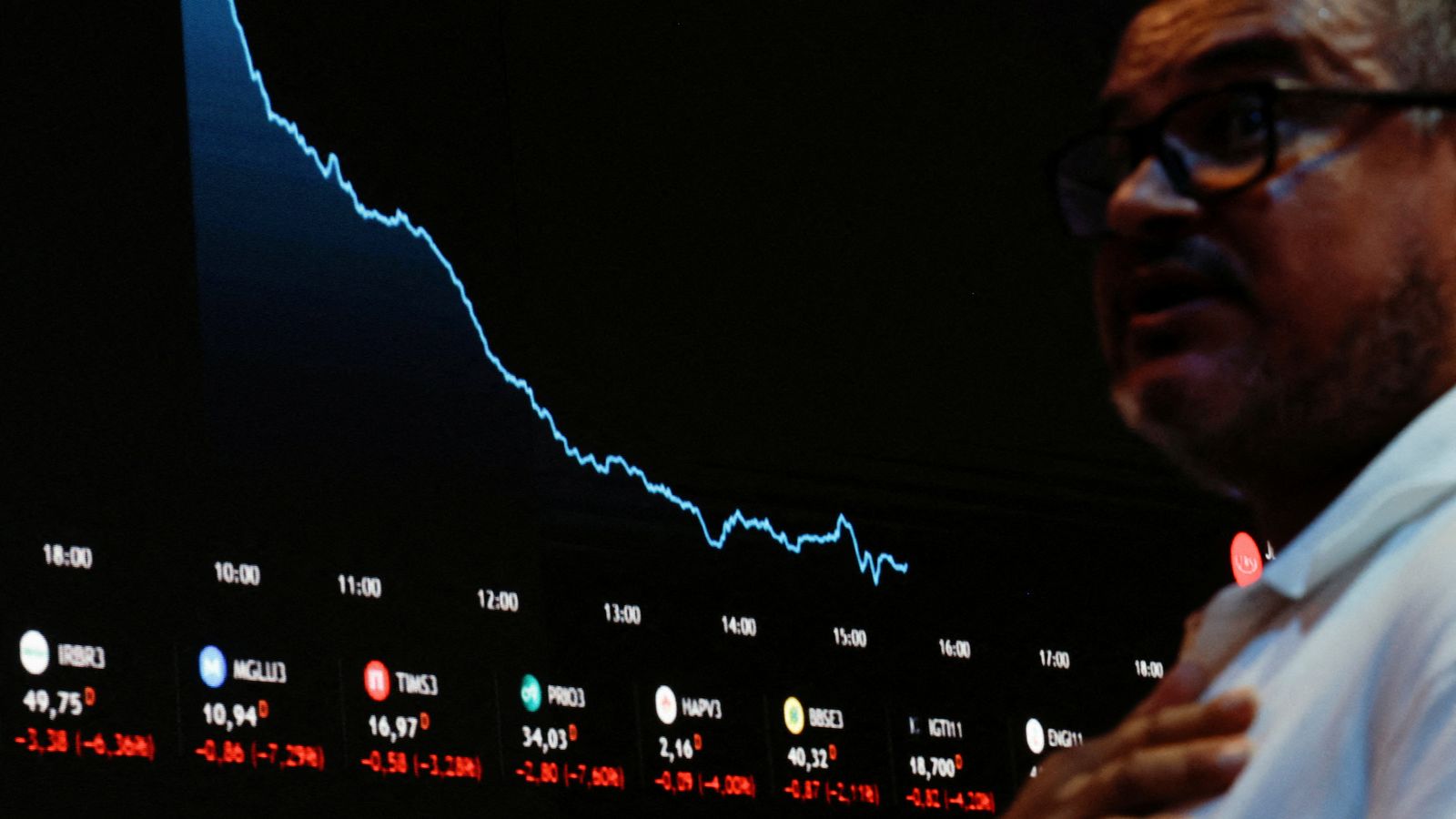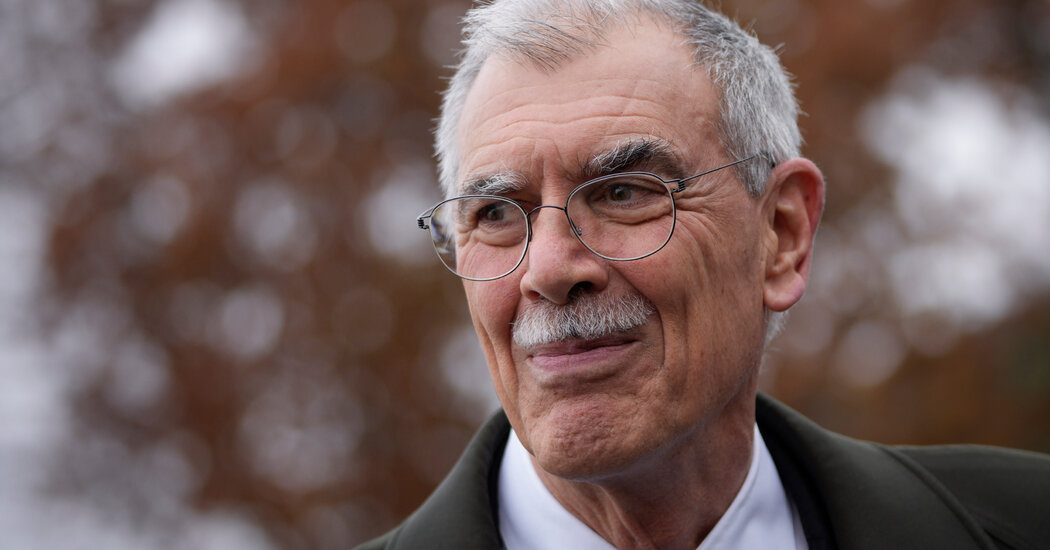
The tariffs are bad, but Britain should remember this: Trump will probably be gone in four years | Simon Jenkins
The tirade was astonishing. On Wednesday afternoon the world watched as the leader of its most powerful nation accused friends and foes alike of having “looted, pillaged, raped, plundered”, and simultaneously waved a bogus list of tariff imbalances. The playground paranoia was cringeworthy. What on earth was going on?
The answer can only be that Donald Trump is America’s elected president for the next four years. He says he wants to end the military conflicts the US has fought or sponsored round the globe for a quarter of a century. We are waiting for that. Meanwhile, he is waging an economic war on world trade, a response that his biographer and ghostwriter, Tony Schwartz, blames on his childhood: “a life spent feeling like a victim … any time he does not totally dominate he feels ripped off”.
The immediate question is how Britain should respond. At this moment British and US trade negotiators, some presumably crippled with embarrassment, have been struggling to reach a bilateral trade agreement of sorts. Rumours are that it was near completion though Trump had yet to agree. Since Trump has already placed Britain among the countries to be least hit by the tariffs, retaliation at this point makes no sense. Britain would be acting outside the EU and it would have minimal impact.
History is never the point in diplomacy, but in tariffs it offers lessons. What Trump calls reciprocity is nothing of the sort. It is competition. The countries he is hitting hardest are in China’s sphere of interest in south-east Asia. These are doing to the US exactly what America did to Europe at the end of the 19th century, working feverishly to undercut its competitor on costs. This plunged 1890s Britain into a deep and lasting agricultural depression. Britain retaliated with tariffs dressed up as imperial preference.
Similar devastation followed President Herbert Hoover’s notorious Smoot-Hawley Act of 1930. Seeking to answer the Wall Street crash, he imposed tariffs on imports that ran from about 20% to as high as 60%. The resulting bout of retaliation from European and other nations ensured that a downturn became a deep global depression. Is there no historian in the White House – or at least in the capitals of Europe? The lesson of Smoot-Hawley is don’t initiate, but above all, don’t retaliate.
As for Trump’s claims of the US being “pillaged”, he may have factored into his balance sheet the activities of his favourite pirates, those of America’s digital empire. Inadequately regulated and all but free of tax, they are widely accused of spreading social and psychological devastation among the world’s young people. Should they not be tariffed? That is without even starting on the service sector, inclusion of which would massively distort Trump’s concept of reciprocity.
Students of classical economics are taught that Adam Smith was right. Free trade led to increased specialisation and market competition. It was tough but fair, and was to the advantage of all. The end of the postwar Bretton Woods system in the 1970s ushered in a world of ever freer trade, and eventual globalisation. The world’s increasing reliance on the dollar led to a recklessness that tottered then recovered in 2008. Ever freer trade remains a bulwark of world prosperity.
What Trump is doing has long been the left’s answer to globalisation. It asserts that the benefits of freer trade flowed to the rich, while the poor needed protection from competition, fair or unfair. This is Trumpism. He is defending his domestic industries against what he understandably sees as an existential menace, particularly from south-east Asia. He is making his consumers pay more for their goods, supposedly repaying them with lower taxes. It did not rescue them in the 1930s.
World trade has become a robust phenomenon. Since 2022 it has adjusted with relative ease to Nato’s sanctions against Russia and its supporting coalition. The chief beneficiaries of sanctions have been the so-called Bric nations (Brazil, Russia, India and China), who grow in strength by the year. Meanwhile a huge energy cost has been borne by Europe, with no change whatsoever in Russia’s policy in Ukraine. But the truth is that trade does not do what it is told by governments. It finds ways of dodging regulatory obstacles and defying economic forecasters. Trump might partially mitigate this week’s damage by ending sanctions forthwith.
after newsletter promotion
What happens next is clearly open to doubt. Pessimists assume that in some degree Trump’s tariff regime will stay. That did not happen after Trump 1.0. There is every sign that he is mercurial, and this may even prove to have been peak Trump. The “economic emergency” powers under which he is operating are shaky and subject to legal challenge. His behaviour has so damaged America’s government and reputation – slashing his civil service, sacking aid workers against the backdrop of the Myanmar disaster, devastating the stock market – that opposition from Washington to Wall Street must steadily emerge. Congress will face its electors in under two years, and party leaders must choose candidates for the succession in little over three. Trump tried to defy the constitution in 2021. He will not do so again.
As for Britain, everything says play it long. Yes, there is a temporary advantage in London being free to negotiate with the US separately from Europe. Something might come of it. But the effect can only be to weaken Europe’s negotiating strength as a whole.
The best hope is that this is not another 1930s or 1890s, but a rush of American blood to the head that will pass. Trump will have reduced the world’s trade with the US and consequently strengthened other countries’ links with each other. Meanwhile, businesses everywhere will have had an almighty shock. They will have been forced to pause and ponder their future. That, at least, is a silver lining. But for now, history screams one message: don’t retaliate, always negotiate.







